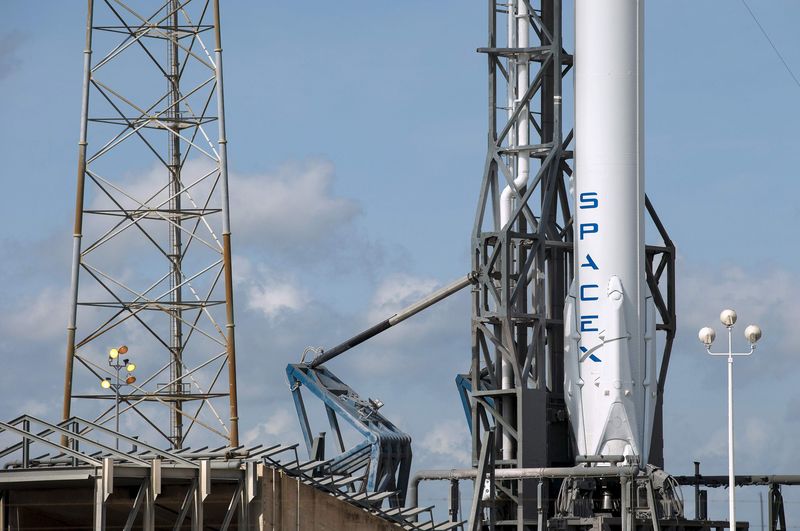By Irene Klotz
CAPE CANAVERAL, Fla (Reuters) - SpaceX plans to keep its Falcon 9 rocket grounded longer than planned following a launch accident in June that destroyed a space station cargo ship, the company president said on Monday.
The privately held company, owned and operated by technology entrepreneur Elon Musk, previously had slated Falcon 9's next flight for no earlier than September.
"We're taking more time than we originally envisioned, but I don't think any one of our customers wants us to race to the cliff and fail again," SpaceX President Gwynne Shotwell said at a webcast panel discussion at the AIAA Space 2015 conference in Pasadena, California.
The company is "a couple of months away from the next flight," she added. The June 28 accident is believed to have been triggered by a flawed support strut in the rocket's upper-stage engine.
The metal strut broke about two minutes after the rocket lifted off from Florida, releasing a bottle of helium that caused the second-stage engine to become over-pressurized. Seconds later, the rocket exploded over the Atlantic Ocean. A Dragon cargo ship was destroyed when it hit the water.
The accident, along with the failed Oct. 28 launch of an Orbital ATK Antares rocket, has left NASA dependent on Russia and Japan to resupply the $100 billion International Space Station, a research laboratory that flies about 250 miles (400 km) above Earth.
SpaceX also has been cleared to compete against industry stalwart United Launch Alliance, a partnership of Lockheed Martin Corp (NYSE:LMT) and Boeing (NYSE:BA) Co, to fly U.S. military satellites.
SpaceX has a backlog of nearly 60 launches, worth more than $7 billion, on its schedule.
The cause of the June accident is "an easy problem to go fix," Shotwell said, adding the company would take extra time to "make sure we're not seeing something like that anywhere throughout the vehicle or the supply chain."
The next mission on SpaceX's launch calendar had been a U.S. government ocean-monitoring satellite called Jason 3, but Shotwell indicated that a commercial communications satellite would move to the front of the line.
Luxembourg-based SES SA has a contract to fly on the first Falcon 9 rocket that features an upgraded first-stage engine.
"We rely on SpaceX and we have full confidence in them," SES spokesman Markus Payer said.
The Falcon upgrade will better position SpaceX to land its rockets at the launch site so they can be refurbished and reflown.

The Jason 3 satellite is slated to fly aboard the standard Falcon 9.